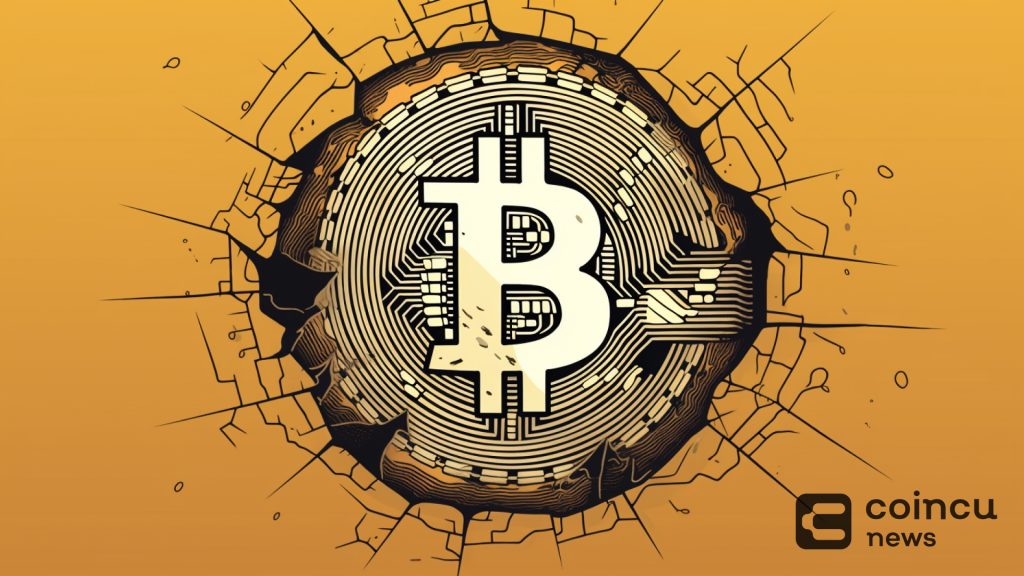Key Points:
- GBTC outflows saw $5.6 billion in the last 16 days, losing its dominance in the Bitcoin ETF market to BlackRock’s IBIT and ProShares’ BITO.
- In response to new rivals like IBIT and FBTC, Invesco and Galaxy Asset Management cut fees to 0.25%.
In a notable development in the cryptocurrency market, Grayscale’s Bitcoin Trust (GBTC) has seen significant outflows, totaling $5,968 million over the last 16 trading days, according to data from BitMEX Research.

Read more: Bitcoin Spot ETF and Futures ETF: Differences To Make The Right Investment Choice
GBTC Outflow Surge: $5.6 Billion in 16 Days
Since the launch of spot Bitcoin ETFs on January 11, Grayscale’s converted GBTC ETF has been dominating daily trading volumes until February 1.
On that day, BlackRock’s iShares Bitcoin Trust (IBIT) and ProShares’ Bitcoin Strategy ETF (BITO) outpaced GBTC, with IBIT leading at $301 million in volume and BITO closely following at $298 million. GBTC secured the third spot with $292 million in trades.
This shift marked the end of GBTC’s supremacy, raising concerns over GBTC outflows of $5.6 billion since the ETF conversion, likely influenced by locked-in investors and higher expense ratios compared to competitors.
Emerging Trends of Stability Post-ETF Launch
Despite the significant GBTC outflows, balance data indicates a more balanced trend in the second half of the month, hinting at a potential cooling of the volatility witnessed post-ETF launch. GBTC’s dominance was initially fueled by heavy outflows from the trust, attributed to investors’ newfound ability to redeem their investment after the product’s conversion to a spot ETF.
Grayscale’s high fees have played a crucial role in shedding over $5.8 billion worth of assets since January 11, as reported by BitMEX Research. The competition in the market is intensifying, with Invesco and Galaxy Asset Management reducing their fees to match the industry standard of 0.25%. These newcomers offer lower costs, potentially attracting more investors and reshaping the landscape of the Bitcoin ETF market.
| DISCLAIMER: The information on this website is provided as general market commentary and does not constitute investment advice. We encourage you to do your own research before investing. |





















